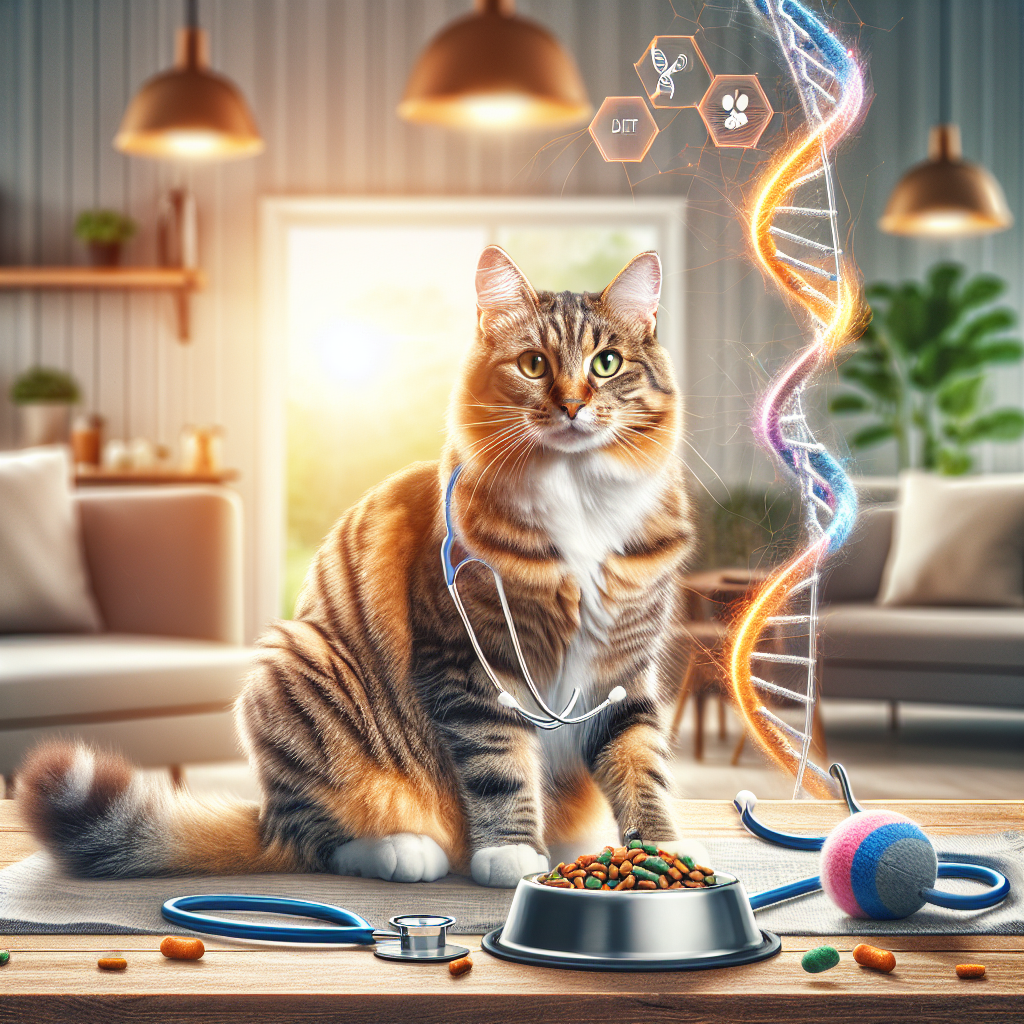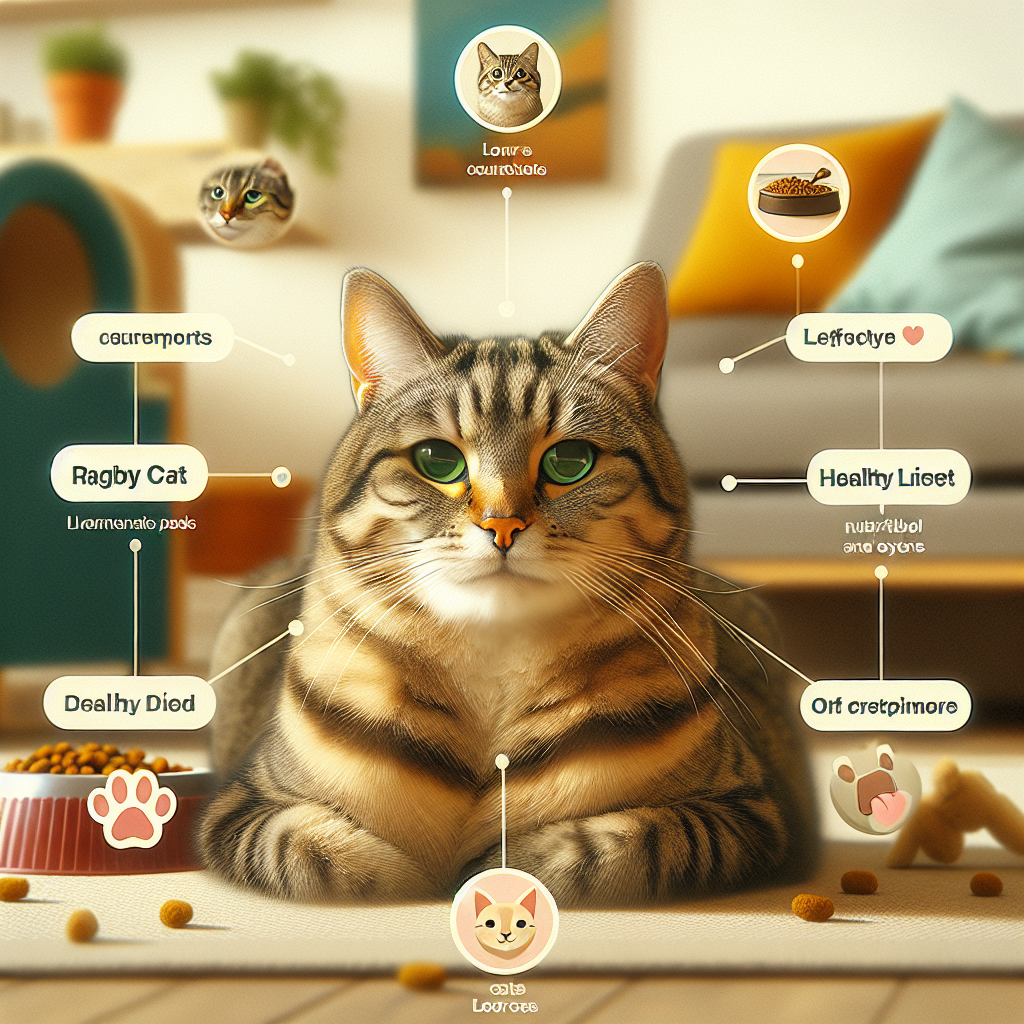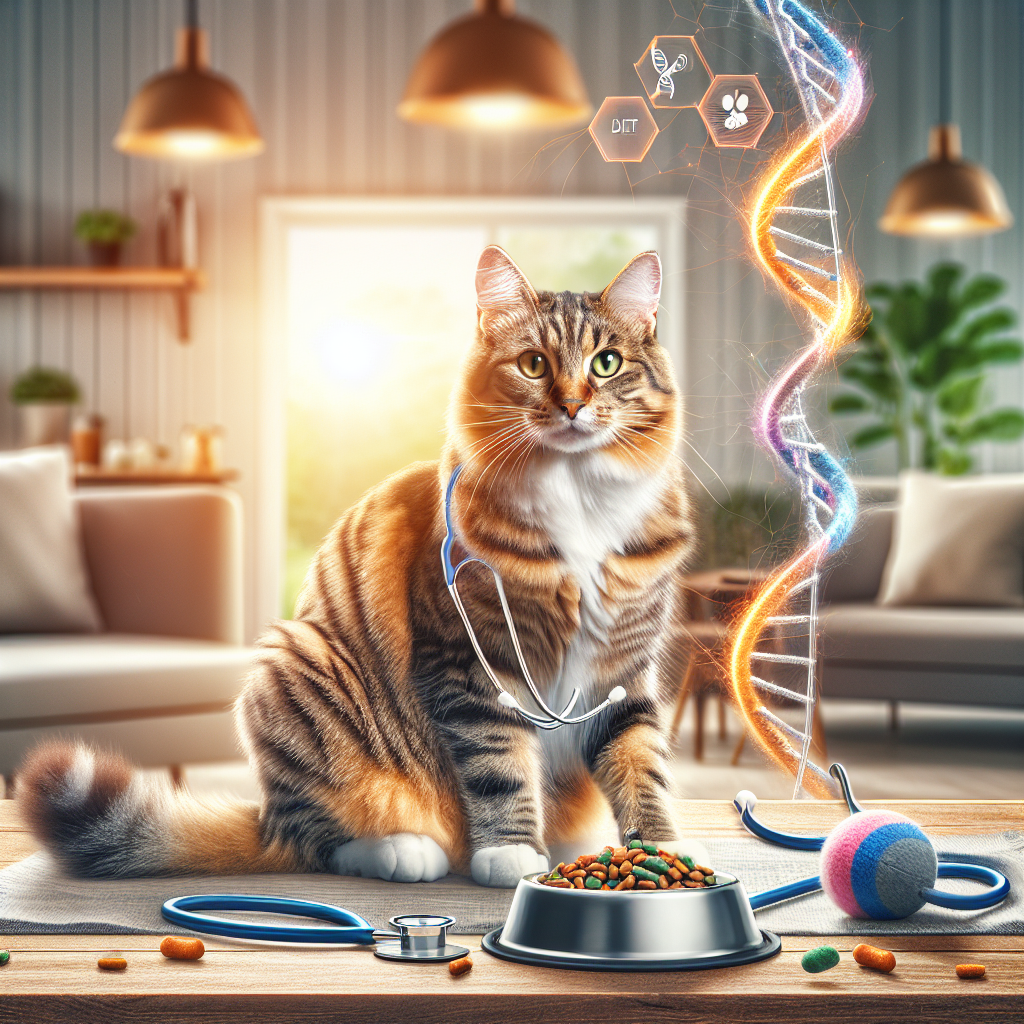Have you ever wondered about the lifespan of a tabby cat? Tabby cats are a popular and beloved breed, known for their beautiful coat patterns and friendly nature. In this article, we will explore the average lifespan of a tabby cat and provide insights into the factors that can affect their longevity. Whether you’re a cat owner or simply curious about feline companions, join us as we uncover the secrets behind how long a tabby cat can truly live.
Factors that Influence the Lifespan of a Tabby Cat
When it comes to the lifespan of a tabby cat, there are several factors that can influence how long they will live. These factors include genetics, healthcare, diet, exercise, and their environment. By understanding and addressing these factors, you can help ensure that your tabby cat lives a long, healthy life.
Genetics
One of the key factors that influence the lifespan of a tabby cat is their genetics. Just like with humans, cats can inherit certain diseases or genetic disorders that can impact their overall health and lifespan. It is important to be aware of any genetic conditions that may be common in tabby cats, as this knowledge can help you take necessary precautions and provide appropriate care.
Healthcare
Another important factor in the lifespan of a tabby cat is the level of healthcare they receive. Regular vet check-ups are crucial in identifying any health issues early on and addressing them promptly. Vaccinations are also essential in preventing diseases that can significantly impact a cat’s lifespan. Additionally, proper dental care and parasite control, such as regular teeth cleanings and flea prevention, can greatly contribute to the overall health and longevity of your tabby cat.
Diet
The diet of a tabby cat plays a vital role in their lifespan. Ensuring they receive the proper nutritional requirements is essential for their overall health and well-being. Feeding them a balanced diet with appropriate amounts of protein, fats, carbohydrates, vitamins, and minerals can help prevent deficiencies and promote optimal health. It is important not to overfeed your cat, as obesity can lead to numerous health issues and shorten their lifespan. Along with a proper diet, providing your tabby cat with access to fresh water at all times is essential for proper hydration.
Exercise
Regular exercise is essential for the overall health and longevity of a tabby cat. Playtime and mental stimulation are important for keeping their minds sharp and preventing boredom. Engaging in interactive play sessions with your cat using toys and activities that mimic hunting can provide both physical and mental stimulation. In addition to playtime, providing opportunities for physical activity, such as climbing structures or access to outdoor enclosures, can help keep your tabby cat fit and healthy.
Environment
Creating a safe and stress-free environment is crucial for the overall well-being of your tabby cat. Implementing safety measures such as securing windows and balconies can prevent accidents or falls. Avoiding exposure to toxic substances, such as certain household plants, chemicals, and foods, is also important to prevent accidental poisoning. Additionally, minimizing stress and anxiety in your tabby cat’s environment can have a positive impact on their overall health and help extend their lifespan.
Average Lifespan of a Tabby Cat
The average lifespan of a tabby cat can vary depending on several factors, including whether they are kept indoors or allowed to venture outdoors.
Indoor Tabby Cats
Indoor tabby cats generally have a longer lifespan compared to their outdoor counterparts. This is primarily because they are exposed to fewer dangers and have reduced exposure to diseases. By keeping your tabby cat inside, you can protect them from potential hazards such as traffic accidents, predation, and exposure to contagious illnesses. With proper care and a safe environment, indoor tabby cats can live well into their late teens or even early twenties.
Outdoor Tabby Cats
Tabby cats that spend a significant amount of time outdoors generally have a shorter lifespan compared to indoor cats. Outdoor cats are exposed to various potential hazards, including encounters with other animals, accidents, and infectious diseases. They are also more susceptible to injuries from fights with other cats or wild animals. While it is impossible to eliminate all risks, providing your outdoor tabby cat with regular veterinary care, including vaccinations and parasite control, can help reduce their chances of contracting diseases that could shorten their lifespan. With proper care and precautions, outdoor tabby cats can live between 10 to 15 years on average.

Genetics
The genetic makeup of a tabby cat can significantly influence their health and lifespan. While tabby cats, like any other breed, can have a variety of genetic variations, certain inherited diseases and genetic disorders are more commonly seen in this breed.
Inherited Diseases
Maternal transmission of certain diseases, such as polycystic kidney disease (PKD) and hypertrophic cardiomyopathy (HCM), can occur in tabby cats. PKD is a progressive kidney disease characterized by the growth of cysts in the kidneys, which can lead to kidney failure. HCM, on the other hand, is a condition that affects the heart’s structure, leading to potentially serious complications. Regular screenings and genetic testing can help identify these inherited diseases early on, allowing for appropriate management and potential prevention of its progression.
Genetic Disorders
In addition to inherited diseases, tabby cats may also be prone to specific genetic disorders. Examples include progressive retinal atrophy (PRA), which leads to the degeneration of the retina and can result in blindness, and polysyndactyly, a condition characterized by extra toes. While these genetic disorders may not directly affect the lifespan of a tabby cat, they can still impact their quality of life and require special care or accommodations.
Healthcare
Providing regular and comprehensive healthcare for your tabby cat is essential to ensure they live a long and healthy life. This includes various aspects of healthcare such as regular vet check-ups, vaccinations, dental care, and parasite control.
Regular Vet Check-ups
Scheduling regular veterinary check-ups for your tabby cat allows for early detection of any potential health issues. During these check-ups, the veterinarian will perform a thorough physical examination, which may involve checking their weight, eyes, ears, teeth, and overall body condition. Blood and urine tests may also be conducted to assess their internal health. By identifying any problems promptly, proper treatment and management can be initiated, potentially extending their lifespan.
Vaccinations
Vaccinations are essential in protecting tabby cats from serious and potentially life-threatening diseases. Common vaccines include those for feline viral rhinotracheitis, calicivirus, panleukopenia, and rabies. Vaccinations should be given as per the recommended schedules provided by your veterinarian. By ensuring your tabby cat is up to date with their vaccinations, you can greatly reduce their risk of contracting contagious diseases that could have a negative impact on their lifespan.
Dental Care
Maintaining good dental hygiene is crucial for the overall health of your tabby cat. Poor dental health can lead to various problems, including periodontal disease, tooth decay, and tooth loss. Regular dental check-ups and cleanings can help prevent these issues and ensure that your cat’s teeth and gums are healthy. Additionally, practicing good dental hygiene at home, such as brushing their teeth regularly, can further contribute to their oral health and overall longevity.
Parasite Control
Parasite control is an essential aspect of cat healthcare. Fleas, ticks, and intestinal parasites can not only cause discomfort and irritation but also transmit diseases. Regular use of safe and effective preventive products, such as flea and tick treatment, and periodic deworming can help keep your tabby cat free from these parasites. By protecting them from these external and internal parasites, you can help prevent potential health issues and improve their overall lifespan.

Diet
Providing a nutritionally balanced diet is crucial for the health and longevity of your tabby cat. Proper nutrition plays a key role in various aspects of their well-being, including immune system function, weight management, and overall organ health.
Nutritional Requirements
Tabby cats, like all cats, have specific nutritional requirements that need to be met in order to maintain optimum health. Their diet should primarily consist of high-quality protein, as they are obligate carnivores. Including a balance of fats, carbohydrates, vitamins, and minerals is also essential. Commercially available high-quality cat food that meets the nutritional requirements set by veterinary nutritionists is recommended. Consult with your veterinarian to determine the appropriate feeding guidelines and any specific dietary considerations for your tabby cat.
Obesity and Overfeeding
Overfeeding and obesity are major concerns for tabby cats, as excess weight can lead to numerous health issues and shorten their lifespan. Obesity increases the risk of conditions such as diabetes, heart disease, arthritis, and respiratory problems. It is important to feed your tabby cat the appropriate portion sizes and avoid indulging them with excessive treats or table scraps. Maintaining a healthy weight through proper diet and portion control is essential in promoting a long and healthy life.
Proper Hydration
Providing access to fresh water for your tabby cat is crucial for maintaining proper hydration. Cats often have a low thirst drive and may not naturally drink enough water. Ensure you have clean water available at all times, and consider providing multiple water sources to encourage drinking. Additionally, incorporating wet cat food into their diet can help increase their water intake. Proper hydration is important for kidney function, digestive health, and overall well-being.
Exercise
Regular exercise is vital for the physical and mental well-being of your tabby cat. Engaging in playtime and providing opportunities for physical activity can help keep them fit, stimulate their minds, and prevent behavioral problems.
Playtime and Mental Stimulation
Playtime is essential for keeping your tabby cat mentally stimulated and preventing boredom. Engage them in interactive play sessions using toys that mimic hunting, such as feathers on strings or laser pointers. This not only provides them with an outlet for their natural instincts but also helps keep them physically active and mentally engaged. Rotate their toys regularly to keep things interesting and ensure they don’t lose interest.
Physical Activity
In addition to playtime, providing opportunities for physical activity is important for a tabby cat’s overall health. Consider providing climbing structures, scratching posts, and shelves, which allow them to climb and explore. These activities help keep cats active and provide exercise for their muscles. Outdoor enclosures or properly supervised outdoor time can also give them the space to run and explore safely. Regular physical activity can help maintain a healthy weight, improve cardiovascular health, and contribute to a longer lifespan.
Environment
Creating a safe and stress-free environment is essential for the well-being and longevity of your tabby cat. By minimizing potential dangers and reducing stress levels, you can help ensure they live a long and happy life.
Safety Measures
Implementing safety measures in your home is important to protect your tabby cat from potential accidents. Secure windows and balconies to prevent falls, and remove or secure any hazardous items that could be ingested or cause injury. Keep small objects and toxic substances out of reach, and avoid using household chemicals or pesticides in areas accessible to your cat. By creating a safe environment, you can minimize the risk of accidents and help prolong their lifespan.
Toxic Substances
Certain common household plants, foods, and chemicals can be toxic to cats. Ensure that your tabby cat is not exposed to these substances, as ingestion can lead to serious health issues. Some examples of poisonous plants include lilies, tulips, and certain ferns. Chocolate, onions, and garlic are examples of foods that can be toxic to cats. Cleaning products, medications, and some human cosmetics can also pose a danger. Be conscious of these substances and keep them out of your cat’s reach to prevent accidental poisoning and potential harm.
Stress and Anxiety
Stress and anxiety can negatively impact a tabby cat’s overall health and well-being. Cats are sensitive creatures, and changes in their environment or routine can often cause stress. It is important to understand your cat’s individual needs and provide them with a safe and secure environment. Offering hiding spots, quiet areas, and vertical spaces to retreat to can help alleviate stress. Additionally, maintaining a consistent routine and providing plenty of mental stimulation through play and affection can help reduce anxiety levels. By minimizing stress, you can help support your tabby cat’s overall health and increase their lifespan.
Indoor Tabby Cats
Keeping a tabby cat indoors can significantly impact their lifespan in a positive way. Indoor cats generally have a longer life expectancy compared to their outdoor counterparts due to reduced exposure to potential dangers and diseases.
Minimal Dangers
By keeping your tabby cat indoors, you can protect them from potential dangers such as traffic accidents, predation, and exposure to contagious illnesses. Indoor cats are not at risk of being hit by cars or attacked by other animals. They are also less likely to contract diseases or infections from other cats in the neighborhood. By eliminating these risks, you can greatly increase the chances of your tabby cat living a longer and healthier life.
Reduced Exposure to Diseases
Outdoor cats are more prone to contracting infectious diseases from other cats in the neighborhood, especially if they come into direct contact or fight with an infected cat. Indoor cats are at a significantly lower risk of exposure to these diseases, as they are not in close proximity to potentially infected animals. By keeping your tabby cat indoors, you can help prevent the transmission of contagious diseases and increase their lifespan as a result.
Outdoor Tabby Cats
While outdoor tabby cats can enjoy the freedom and stimulation of the natural environment, there are certain hazards and risks associated with being outdoors that can impact their lifespan.
Potential Hazards
Outdoor tabby cats face a range of potential hazards that can pose a threat to their safety and well-being. Traffic accidents are a significant risk, especially in areas with heavy traffic. Wildlife encounters, such as encounters with larger predators or territorial fights with other cats, can result in serious injuries. Exposure to extreme weather conditions, such as extreme heat or cold, can also be detrimental to an outdoor cat’s health. Taking necessary precautions and supervising their outdoor time can help minimize these hazards and reduce the chances of accidents or injuries.
Higher Risk of Injury and Diseases
Outdoor tabby cats are at a higher risk of injuries and diseases compared to their indoor counterparts. Fights with other cats can lead to severe wounds, infections, and the transmission of contagious diseases. Parasite infestations, such as fleas and ticks, are more common in outdoor cats. Additionally, outdoor cats are more prone to accidents and injuries, such as falls from trees or objects, which can result in broken bones or other serious injuries. By providing regular veterinary care, including vaccinations and parasite control, you can mitigate some of these risks and help extend the lifespan of your outdoor tabby cat.
Social Interaction
Social interaction and bonding with humans is a key aspect of a tabby cat’s overall well-being. Nurturing a strong bond and providing regular playtime and cuddle sessions are essential for their happiness and longevity.
Playtime and Cuddle Sessions
Spending quality time engaging in play sessions and cuddling with your tabby cat is not only enjoyable for both of you but also crucial for their mental well-being. Playtime provides an outlet for their natural instincts and keeps them mentally stimulated. Interactive toys, such as feather wands or treat puzzles, can provide enriching and engaging play experiences. Cuddle sessions, where you spend time petting and bonding with your cat, help strengthen your relationship and provide them with comfort and security. Social interaction and bonding with humans can contribute to their overall happiness and contribute to a longer lifespan.
Bonding with Humans
Tabby cats are known for their social and affectionate nature, and developing a strong bond with their human caregivers is important for their emotional well-being. Spending regular one-on-one time with your tabby cat, providing them with attention, love, and affection, helps build trust and strengthens the bond between you. Cats that feel secure and loved are generally happier and less stressed, which can help improve their overall health and extend their lifespan. Make sure to provide ample opportunities for social interaction and create a loving and nurturing environment for your tabby cat to thrive in.
In conclusion, the lifespan of a tabby cat can be influenced by various factors such as genetics, healthcare, diet, exercise, and environment. Understanding and addressing these factors can help ensure that your tabby cat lives a long and healthy life. By providing proper healthcare, nutrition, exercise, and social interaction, creating a safe and stress-free environment, and taking appropriate measures to minimize risks, you can help maximize your tabby cat’s lifespan and enjoy many happy years together.

